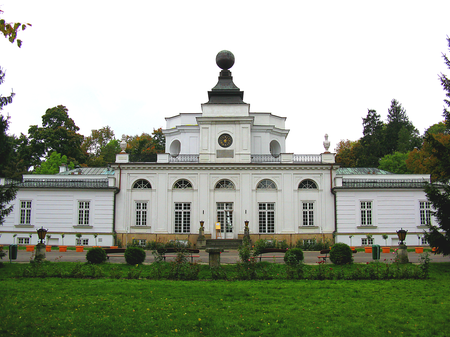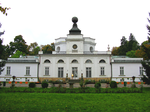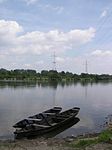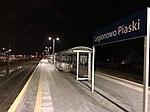Gmina Jabłonna, Masovian Voivodeship
Gminas in Masovian VoivodeshipLegionowo County

Gmina Jabłonna is a semi-rural gmina (administrative district) in Legionowo County, Masovian Voivodeship, in east-central Poland. Its seat is the village of Jabłonna, which lies approximately 3 kilometres (2 mi) south of Legionowo and 19 km (12 mi) north of Warsaw. The gmina covers an area of 64.55 square kilometres (24.9 sq mi), and as of 2006 its total population is 13,172 (17,531 in 2013).
Excerpt from the Wikipedia article Gmina Jabłonna, Masovian Voivodeship (License: CC BY-SA 3.0, Authors, Images).Gmina Jabłonna, Masovian Voivodeship
Modlińska, gmina Jabłonna
Geographical coordinates (GPS) Address Nearby Places Show on map
Geographical coordinates (GPS)
| Latitude | Longitude |
|---|---|
| N 52.377777777778 ° | E 20.916388888889 ° |
Address
Kościół pw. Matki Bożej Królowej Polski
Modlińska 105
05-110 gmina Jabłonna
Masovian Voivodeship, Poland
Open on Google Maps








